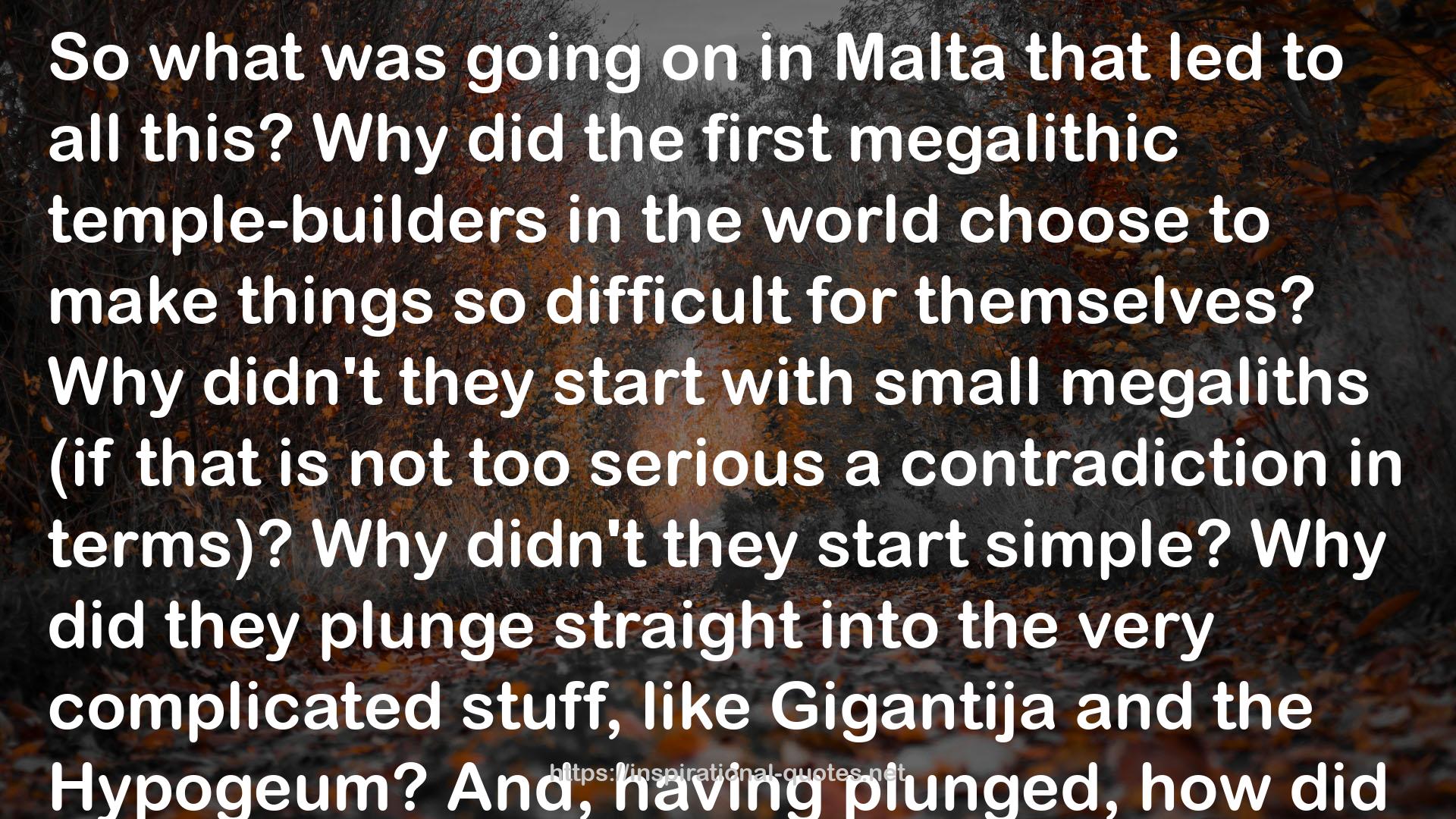" So what was going on in Malta that led to all this? Why did the first megalithic temple-builders in the world choose to make things so difficult for themselves? Why didn't they start with small megaliths (if that is not too serious a contradiction in terms)? Why didn't they start simple? Why did they plunge straight into the very complicated stuff, like Gigantija and the Hypogeum? And, having plunged, how did they manage to produce such magnificent results? Was it beginner's luck? Or were their achievements as humanity's pioneering architects the product of some sort of heritage?
Beginner's luck is possible, but having studied the earliest temples, and their level of perfection, archaeologists agree that heritage is the right answer. The only problem is what heritage? And where is it to be looked for? Since it is the received wisdom that no human beings lived on Malta before 5200 BC, and since this is a 'fact' that is at present unquestioned anywhere within conventional scholarship, archaeologists from roughly the mid-twentieth century onwards have simply seen no reason to explore the possibility that the heritage of the Maltese temples might be older than 5200 BC. To do so would be the research equivalent of an oxymoron -- like breeding dodos, trying to conduct an interview with William Shakespeare or seeking evidence that the earth is flat -- and would invite the ridicule of one's peers. "
― Graham Hancock , Underworld: The Mysterious Origins of Civilization
